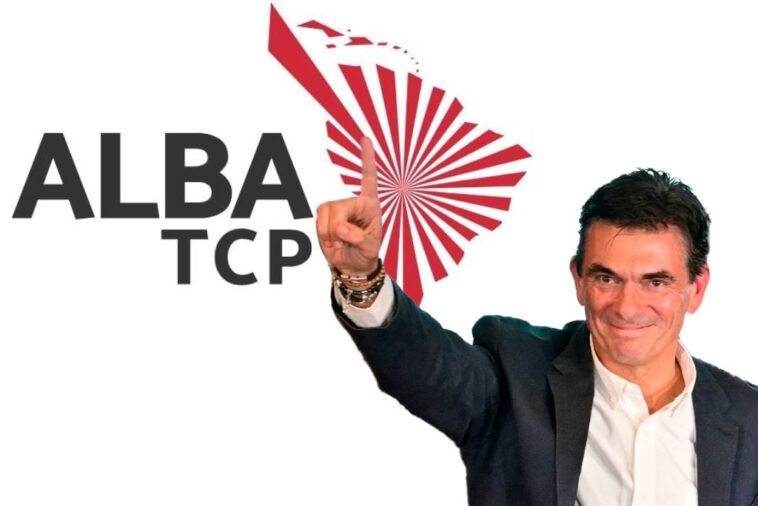Bolivia’s president-elect, Rodrigo Paz Pereira, has announced the country’s immediate withdrawal from the Bolivarian Alliance for the Peoples of Our America (ALBA), a regional bloc driven by the governments of Cuba and Venezuela.
This decision, revealed during a press conference on October 25, 2025, not only represents a direct rejection of the principles that have supported authoritarian regimes in the region but also accelerates the organization’s imminent collapse, reducing it to a remnant of nations with ruined economies and systematic human rights violations.
Paz, from the Christian Democratic Party (PDC), who will assume power on November 8 after winning the October 19 runoff election with 55% of the vote, emphasized that Bolivia will prioritize alliances with «nations where democracy is a real principle and not an empty slogan,» clearly alluding to the dictatorships in Havana, Caracas, and Managua.
The announcement comes amid a severe economic crisis in Bolivia, inherited from the Movement Toward Socialism (MAS) governments, which has left the country with critically low international reserves, a dollar shortage, and rampant inflation nearing 15%.
Under Evo Morales (2006–2019) and Luis Arce (2020–2025), Bolivia joined ALBA in 2006, receiving supposed benefits in health and education, such as literacy programs for over one million people and eye care for three million through initiatives like Mission Miracle.
However, these «achievements» have been overshadowed by dependence on Venezuelan and Cuban subsidies, which failed to offset the nationalization of hydrocarbons or geopolitical isolation.
The 2008 break with the United States, following the expulsion of the U.S. ambassador, worsened the decline, leaving Bolivia excluded from open trade flows and exposed to the current recession, with road blockades and fuel shortages.
Paz Pereira, born in Spain during his family’s exile and educated in economics in the United States, has been firm: he will not invite the leaders of Cuba, Venezuela, or Nicaragua to his inauguration and plans to restore diplomatic relations with Washington to attract investment and combat drug trafficking.
This pragmatic stance seeks a «capitalism for all,» with tax cuts, decentralization, and market openness, breaking with the statist model that, according to analysts, has perpetuated extreme poverty among 15% of the indigenous population, a historical base of MAS.
The ALBA response was swift. On October 24, the bloc, chaired by Venezuela, suspended Bolivia for its «anti-Bolivarian, anti-Hispanic American, pro-imperialist, and colonialist conduct,» labeling the new government as «ultra-rightist.»
The statement, broadcast by Venezolana de Televisión, rejected Paz’s remarks against member regimes but insisted on maintaining «solidarity ties with the Bolivian people.» Founded in 2004 by Hugo Chávez and Fidel Castro as an alternative to the U.S.-driven Free Trade Area of the Americas (FTAA), ALBA has lost influence with Ecuador’s exit in 2018 and Bolivia’s brief rupture in 2019 during the post-Morales crisis.
Today, with only ten members—including Caribbean islands like Antigua and Barbuda, Dominica, and Grenada—its economic viability is null, relying on an inactive ALBA Bank and a virtual currency, the SUCRE, that never took off.
Experts see this suspension as a desperate act by a club of authoritarians, where Cuba exports doctors in exchange for Venezuelan oil, and Nicaragua represses opponents with ideological backing.
Far from promoting integration, ALBA has served as a shield for human rights violations: in Venezuela, over 7 million exiles due to hunger and repression; in Cuba, political prisons and a collapsed economy with a per capita GDP of $9,500; in Nicaragua, fraudulent elections and the forced exile of thousands.
By breaking away, Bolivia aligns with a regional democratic resurgence—such as Argentina under Javier Milei or Ecuador with Daniel Noboa—rejecting the «21st-century socialism» that has multiplied corruption and dependence.
Evo Morales, a fugitive with an arrest warrant for rape and sedition, called for a referendum to «consult the people» on the «surrender to the U.S.,» but polls show 60% of Bolivians prioritize the economy over obsolete ideologies.
The impact extends beyond borders: with Bolivia out, ALBA loses its largest producer of lithium and gas, key resources for the global energy transition. Countries like the U.S. and the European Union have offered immediate support to address fuel and dollar shortages, ensuring stability.
Paz, son of former president Jaime Paz Zamora, represents not only a generational shift—58 years old, former mayor of Tarija and senator—but also the triumph of Christian-democratic moderation over leftist extremism. His vice president, Edmand Lara, called for «unity and reconciliation,» promising social equity without statism.
Fe, Familia y Patria. Ese es el mensaje que dejamos en cada rincón de la patria, solo con eso Bolivia saldrá pa adelante. Recordando a todas las personalidades del pasado pero respetuosamente decidiendo mirar hacia el futuro. Bolivia abre las puertas al mundo y vuelve a ser una… pic.twitter.com/TyG4dZohzw
— Rodrigo Paz Pereira (@Rodrigo_PazP) October 21, 2025
In summary, Bolivia’s exit from ALBA is not just an administrative farewell but the epitaph of a project that prioritized propaganda over progress.
Hispanoamerica, weary of authoritarianism disguised as solidarity, moves toward a future of open markets and robust democracies. For Bolivians, this could mean hope: jobs, stability, and a place in the free world.
About The Author
Joana Campos
Joana Campos es abogada y editora con más de 10 años de experiencia en la gestión de proyectos de desarrollo internacional, enfocada en la sostenibilidad y el impacto social positivo. Anteriormente, trabajó como abogada corporativa. Egresada de la Universidad de Guadalajara.




